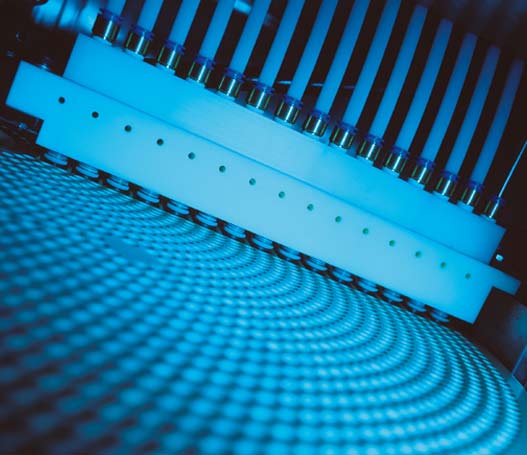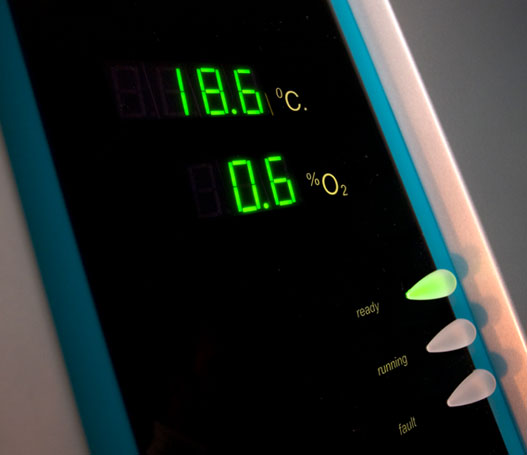
- Applications
-
Products
-
Liquid Handling
- firefly Accelerate genomic research with innovative all-in-one, compact liquid handling
- mosquito Nanolitre liquid handling technology performs ‘traditional’ tasks at a fraction of the volume, and higher speeds
- dragonfly Delivers accurate and repeatable nanolitre to milliliter dispensing
- apricot Automated liquid handling instrumentation for convenient general use across your entire team
- Sample Preparation
-
Sample Management
- comPOUND A scalable, reliable, and secure compound management solution
- BioMicroLab Easy-to-use sample management automation instruments
- arktic Robust biospecimen storage and management down to -80°C
- lab2lab Novel sample and data transfer network system
- comPACT Reliable and efficient -20°C storage and retrieval has never been more accessible
-
Liquid Handling
-
About
- Company With a focus on liquid handling, sample preparation and sample management, our expert teams create state-of-the-art solutions that scientists and researchers can trust Culture We have one overarching mission: to work together to accelerate life science research. Through our innovative solutions and state-of-the-art tools, we believe we can make a real difference to human health Partners Collaboration is key in our mission to make a real difference to human health. Partnering with application leaders globally, we co-create to solve new challenges across the life sciences. Innovation From the initial prototype through to manufacturing, installation and beyond, we bring a problem-solving mindset and technical expertise to drive innovation
-
Executive Leadership
 Through strategic guidance, visionary thinking, and a relentless pursuit of excellence, our senior executives steer SPT Labtech towards achieving its mission of making a real difference to human health through solving advanced laboratory challenges.
Learn more
Through strategic guidance, visionary thinking, and a relentless pursuit of excellence, our senior executives steer SPT Labtech towards achieving its mission of making a real difference to human health through solving advanced laboratory challenges.
Learn more 
-
View all
 Board of Directors
Board of Directors
 Our Board of Directors are committed to driving the long-term success and sustainability of SPT Labtech, providing expert guidance and oversight to execute the company’s ambitious commercial strategy.
Learn more
Our Board of Directors are committed to driving the long-term success and sustainability of SPT Labtech, providing expert guidance and oversight to execute the company’s ambitious commercial strategy.
Learn more 
-
Knowledge Base
- Resources Our wide range of insightful resources include videos, whitepapers, eBooks, application notes and more Events & Webinars Meet the SPT team at events all over the globe and virtually via our webinars Podcast We chat with innovators and leaders from across the community to gain their unique insights. News Latest news from SPT Labtech globally Blog Our latest blog posts feature trends in research, innovative techniques and new technology
-
25 February, 2026
 SPT Labtech to collaborate with Illumina to develop automated platform supporting genomics in decentralized healthcare settings
Continue reading
SPT Labtech to collaborate with Illumina to develop automated platform supporting genomics in decentralized healthcare settings
Continue reading 
-
09 February, 2026
 SPT Labtech and BellBrook Labs Introduce High-Throughput Screening Platform for Cancer Research
Continue reading
SPT Labtech and BellBrook Labs Introduce High-Throughput Screening Platform for Cancer Research
Continue reading 
-
14 January, 2026
.jpg?length=320&name=Twist%20x%20SPT%20Labtech%20Press%20Release%20(1200%20x%20800%20px).jpg) SPT Labtech enables automated Twist Bioscience NGS library preparation workflows on firefly platform
Continue reading
SPT Labtech enables automated Twist Bioscience NGS library preparation workflows on firefly platform
Continue reading 
10
- Careers
- Home
- comPOUND Timeline
comPOUND®
25 Years of Pneumatic Precision and Proven Performance in Sample Management
The evolution of comPOUND®: Powered by pneumatics, proven by time
In any lab environment, sample integrity is key. For nearly 25 years, our comPOUND® automated sample management system has allowed labs of all sizes to transform how they organize, store and retrieve valuable samples. By taking care of these critical daily tasks, it has allowed labs to work in confidence and focus on what really matters.
comPOUND’s longevity is thanks to its unique pneumatic technology, which has delivered decades of reliable performance. Through this technology, comPOUND ensures samples are delivered to the end user whenever and wherever they need them, all while limiting robotics in the store to ensure consistent cold operation. This core innovation remains as relevant today as when it was first launched, by continually adapting to meet evolving laboratory needs.
First demonstrated to the public at the SBS conference in Edinburgh in 1999, follow the journey of comPOUND with us as we dive into its evolution from a disruptive technology to an industry standard sample management solution:
The launch of comPOUND
The laboratory landscape of 2001 presented a clear challenge: researchers needed a middle ground between inefficient manual freezers and large-scale automated storage. These systems took up an entire room and were almost always built bespoke, meaning that automation was often out of reach for most labs. We responded with comPOUND, which was the first modular, automated sample storage and retrieval system. For the first time, the benefits of automated sample management weren’t reserved only for those with extensive budgets and space.
What set comPOUND apart was its unique combination of accessibility and performance. As the fastest single vial picker available, the system becomes more efficient when connecting multiple units together that operate in parallel. Our launch also targeted the early industry adoption of 1.4 ml Matrix push cap tubes featuring 2D data matrix barcodes which allowed for a much higher sample density in storage design.
Most importantly, comPOUND’s pneumatic technology kept mechanical components away from precious samples, reducing the risk of unwanted heating and mechanical failures in cold environments. We had already proven that pneumatic technology was an effective method of tube transport, and with comPOUND, we took this a step further by implementing cold storage and retrieval.

The first interconnected system
Just a year after launch, we delivered the first interconnected comPOUND system at Wyeth (now Pfizer), which initially comprised three comPOUND stores and ultimately grew to ten stores with capacity of 1m samples. This was integrated with the comPILER tube to plate processing system and the Tekcel Tekbench liquid handler. This landmark deployment validated our modular approach, proving that comPOUND could scale and adapt to meet pharmaceutical growth demands.
This project was a significant step to bringing custom engineering expertise to our emerging product business and showed our commitment to addressing complex sample management challenges. It also marked the beginning of comPOUND's popularity surge in the industry, as laboratories recognized the potential of a system that could grow with their needs.

Expanding temperature range & storage capacity
With the release and industry-wide adoption of 0.5 ml matrix push cap tubes, our engineers took on the sizeable project of re-engineering comPOUND’s internal carousels to enable double stacking. Not only did this allow compatibility with the new tube format, but it also doubled the storage capacity from 100,000 to 200,000 samples while keeping the same footprint. comPOUND already featured high density storage thanks to its innovative carousel system which still stands out from traditional rack-based storage, but this redesign enabled labs to make even better use of precious available space.
At the same time, we expanded comPOUND’s temperature range from -20°C to +4°C, meaning that we could support even more labs and sample types.

Accessories to meet growing throughput demands
It became clear through speaking with users that there was a need for a solution that provided greater walkaway capability to support increasing throughput demands. In response to this, we introduced several accessories to transform comPOUND from a standalone instrument to a comprehensive sample management workflow system. This retained our modular approach, but added greater flexibility, allowing labs to build the system they needed for their specific environment.
These accessories leveraged our expertise in pneumatic technology, and included:
- connect: Enables remote storage and retrieval of samples from comPOUND units to adjacent laboratories or floors and integrates easily with automated work cells.
- comSTACKER: Provides walk-away capabilities allowing multiple racks at once to be loaded into/out of comPOUND for walk-away storage and retrieval
This expansion period significantly boosted our sample management offering, positioning comPOUND as the scalable solution of choice for growing sample libraries.

Improving user experience: software redesign

comSTACKER 2
Innovation despite global challenges
The COVID-19 pandemic didn't stop innovation for comPOUND.
Despite restrictions, our engineering team took this time to overhaul the design of comSTACKER, delivering a solution that was fully integrated into the user interface for dynamic operation and re-engineered to meet customer design requests. Impressively, this project was carried out almost entirely remotely at a time when remote work was not commonplace in the engineering industry. It’s a great example of what can be achieved through a commitment to continuous improvement and an open mind in the face of external challenges.

Acoustic tube compatibility
Accommodating the needs of big pharma
As large pharmaceutical companies increasingly embraced acoustic tube technology for its compatibility with low-volume screening, our engineers once again demonstrated comPOUND's adaptability for enhancement.
Prior to this point, every 2D barcoded tube on the market had featured a circular base where the rotational orientation of the tube was irrelevant to automated handling systems. The square-bottomed design of new acoustic tubes therefore presented challenges for traditional mechanical storage solutions. However, comPOUND's pneumatic technology was uniquely positioned to overcome these difficulties by incorporating an automatic rotational alignment mechanism in the delivery system.
This adaptation required substantial engineering efforts for both software and hardware systems, but it ensures comPOUND continues to meet evolving research needs.

Expansion into new application areas
Today, comPOUND continues to expand into new applications, including multi-unit installations at EditCo Bio and Transnetyx highlighting the trust in pneumatic technology across diverse research areas.
As labs face ever evolving and demanding operational challenges, comPOUND's fundamental principles of reliability and scalability remain as valuable today as they were at its inception nearly 25 years ago. The pneumatic technology that made comPOUND unique in 2001 continues to distinguish it in the sample management space, providing researchers with a robust solution that safeguards sample integrity while enhancing laboratory productivity.

Then be sure to get in touch with one of our experts to help you find the best possible solution.



